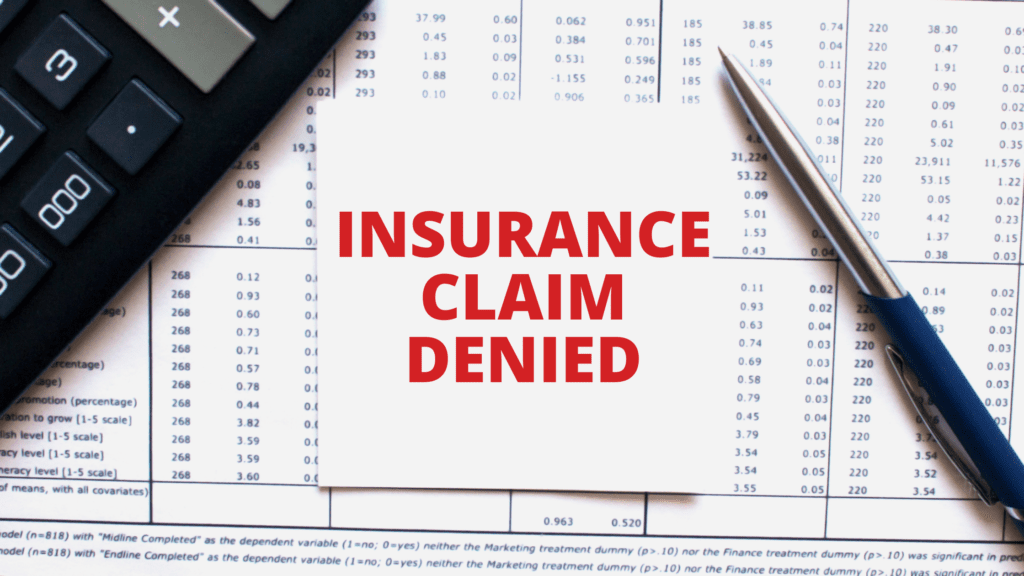
Filing an insurance claim for storm damage can be a complex process, and even a small mistake can lead to delays, denials, or inadequate compensation. As a homeowner, it's important to be aware of the common mistakes to avoid when filing a storm damage insurance claim. In this article, we'll highlight these mistakes and provide valuable tips to help you navigate the claims process successfully.
- Waiting Too Long to File the Claim: One of the most common mistakes is delaying the filing of an insurance claim. Notify your insurance company as soon as possible after the storm event. Prompt reporting allows for a timely assessment of the damage and ensures compliance with any policy requirements regarding claim submission deadlines.
- Failing to Document the Damage: Proper documentation is crucial for a successful insurance claim. Take detailed photographs and videos of all the storm-related damage. Make sure to capture different angles, close-ups, and wide shots to provide a comprehensive visual record. Additionally, keep written descriptions of the damage and create an inventory of affected items.
- Neglecting to Mitigate Further Damage: It's essential to take immediate action to mitigate further damage after a storm. Failure to do so can result in the insurance company reducing the claim payout. Take necessary steps to prevent additional harm, such as covering damaged areas with tarps, boarding up broken windows, or arranging temporary repairs as allowed.
- Not Reviewing Your Insurance Policy: Before filing a claim, thoroughly review your insurance policy to understand the coverage and any specific requirements or exclusions related to storm damage. Being aware of your policy provisions helps you make informed decisions during the claims process and ensures you receive the appropriate compensation.
- Overlooking Hidden or Secondary Damage: Some storm damage may not be immediately apparent. Inspect your property thoroughly and be mindful of hidden or secondary damage that may have occurred. This includes damage to the underlying structure, electrical systems, or plumbing, which may require professional assessment to identify.
- Underestimating the Value of the Claim: Inaccurately estimating the value of your claim is a common mistake. Consult with contractors or professionals to get accurate repair estimates and replacement costs. Take into account all the damages, including structural, personal property, and temporary living expenses, to ensure you submit a comprehensive and accurate claim.
- Not Seeking Professional Assistance: Navigating the insurance claims process can be overwhelming. Engaging a public adjuster or an experienced attorney specializing in insurance claims can be beneficial. They can guide you through the process, help negotiate with the insurance company, and ensure your rights and best interests are protected.
- Poor Communication with the Insurance Company: Maintain clear and effective communication with your insurance company throughout the claims process. Document all conversations, including the date, time, and names of representatives spoken to. Be responsive to their requests for information or documentation and keep them updated on any additional damages or findings.
Avoiding these common mistakes can greatly improve the outcome of your storm damage insurance claim. By promptly reporting the claim, thoroughly documenting the damage, mitigating further harm, understanding your policy, identifying all damage, accurately valuing the claim, seeking professional assistance when needed, and maintaining clear communication, you can navigate the process successfully and secure the compensation you deserve. Remember, attention to detail and proactive action can make a significant difference in your storm damage insurance claim experience.
Related Posts
Essential Tree Services for Happy Valley Homeowners
Happy Valley, Oregon, is known for its beautiful landscapes, tree-lined streets,...
Read More
How to Choose the Best Church Chair for Your Sanctuary
Selecting the perfect chairs for church sanctuary is a decision that balances pr...
Read More
Choosing the Right Roofing Material for Enhanced Storm Resistance
Your roof is your home's first line of defense against storms, making it crucial...
Read More
Top 5 Warning Signs of Hidden Storm Damage in Your Home
Storms can leave a lasting impact on your home, often causing hidden damage that...
Read More




